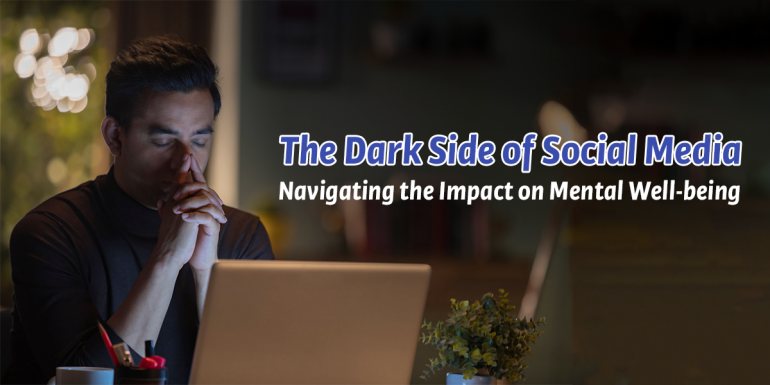In today’s hyper-connected world, social media platforms have become an integral part of our lives. They offer us the means to connect with friends and family, stay updated on current events, and even build personal brands. However, beneath the surface of those perfectly filtered photos and seemingly idyllic lives, there’s a growing concern about how social media can induce negative energy, leading people to feel deprived and anxious. In this blog, we’ll explore the dark side of social media and discuss how we can use these platforms positively to enhance our mental well-being.
The Illusion of Perfection
One of the primary reasons social media can induce negative emotions is the illusion of perfection that it often presents. When scrolling through our feeds, we encounter carefully curated posts that showcase the highlights of people’s lives: picturesque vacations, gourmet meals, and glamorous events. These images create a distorted reality where everyone else seems to be living their best life while we’re stuck in the mundane.
Psychologists have termed this phenomenon the “highlight reel effect.” When we consistently see the best moments in other people’s lives, it’s easy to start comparing ourselves and feeling inadequate. We may feel deprived because we’re not experiencing the same level of excitement and success that others seem to be enjoying.
The Fear of Missing Out (FOMO)
FOMO, or the fear of missing out, is another powerful negative emotion that social media can trigger. When we see our friends attending events, going on trips, or enjoying parties, we might feel left out or that we’re not making the most of our lives. FOMO can lead to anxiety and even depression.
The constant barrage of updates about what others are doing can make us feel like we need to keep up, even if it’s financially or emotionally draining. This pressure to conform to an idealized lifestyle can be detrimental to our mental health.
Seeking Validation Through Likes and Comments
Social media platforms are designed to keep us engaged and seeking validation through likes and comments. Every time we post something, we often subconsciously measure our worth based on the number of likes it receives. If a post doesn’t get enough attention, we might feel rejected or unworthy.
This constant craving for validation can lead to a cycle of posting for approval rather than sharing genuinely meaningful content. It shifts the focus from authentic self-expression to catering to the expectations of others, which can be emotionally draining.
Social Comparison and Envy
Social media also promotes a culture of constant social comparison. We not only compare our lives to those of our friends but also to celebrities, influencers, and even strangers on the internet. This constant comparison can breed feelings of envy and jealousy, which are detrimental to our overall well-being.
Envy, in particular, can lead to bitterness and resentment, eroding our ability to appreciate our own lives and accomplishments. Instead of celebrating our unique journeys, we may become fixated on what others have and we lack.
Shifting to a Positive Social Media Experience

While the negative aspects of social media are undeniable, it’s essential to remember that these platforms can be used positively to enhance our mental well-being. Here are some strategies for maintaining a healthy relationship with social media:
1. Limit Your Time
Set specific time limits for your social media usage. Allocate a certain amount of time each day or week for scrolling, and stick to it. Reducing screen time can help you regain control over your online experiences.
2. Curate Your Feed
Be mindful of the accounts you follow. Unfollow or mute accounts that consistently make you feel negative emotions. Surround yourself with content that inspires, educates, or entertains you in a positive way.
3. Practice Gratitude
Regularly remind yourself of the things you’re grateful for in your own life. This can help counteract feelings of deprivation and envy.
4. Be Mindful of Your Motivations
Before posting on social media, consider your motivations. Are you sharing something because it genuinely brings you joy, or are you seeking external validation? Strive for authenticity in your online presence.
5. Connect Authentically
Use social media as a tool for meaningful connection rather than comparison. Engage in genuine conversations with friends and acquaintances, and focus on building real relationships.
6. Take Breaks
Periodically disconnect from social media entirely. A digital detox can provide mental clarity and help you reset your perspective.
The Power of Positive Social Media

Social media is a double-edged sword. While it can induce negative energy when used improperly, it also has the potential to enrich our lives when used positively. By being mindful of our online habits and fostering genuine connections, we can transform social media into a source of inspiration, support, and personal growth.
In conclusion, social media’s impact on our mental well-being largely depends on how we choose to use it. Instead of succumbing to the negative emotions it can evoke, let’s harness its positive potential to enhance our lives and the lives of those around us. Remember, it’s not about keeping up with others; it’s about celebrating our unique journeys and using social media as a tool for self-expression and connection.







